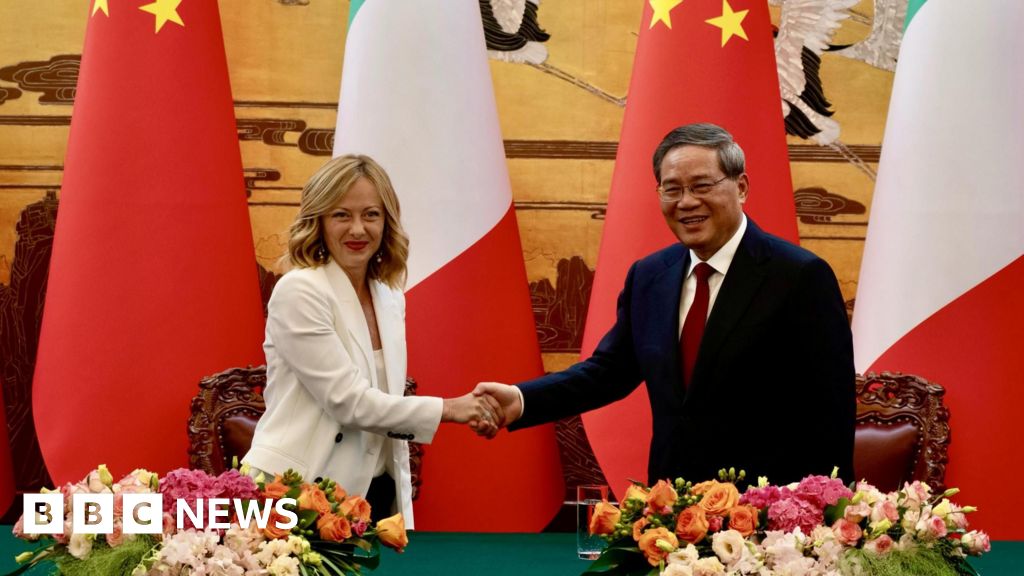Ms Meloni described her trip as a “demonstration of the will to begin a new phase, to relaunch our bilateral cooperation”.
She also said the two countries have signed an agreement that aims to boost cooperation on electric vehicles and renewable energy.
In a statement released by his office, Premier Li said the two countries aim to increase “mutually beneficial cooperation between small and medium-sized enterprises in the fields of shipbuilding, aerospace, new energy, artificial intelligence.”
Italy was the only major Western nation to sign up to the BRI, one of China’s most ambitious trade and infrastructure projects.
The move was heavily criticised at the time by the US and some other major Western countries.
Since coming to office in 2022, Ms Meloni has sought to lead a more pro-Western and pro-Nato foreign policy than her predecessors.
Before withdrawing from the BRI, Ms Meloni had described the former government’s decision to join it as “a serious mistake”.
“Every country which is a [BRI] member knows that China is first and they are second and I don’t think Italy as a G7 member wanted to be grouped together with Russia, Pakistan or Sri Lanka,” said Alicia Garcia-Herrero, chief economist for the Asia Pacific region at investment bank Natixis.
“Without BRI Meloni is coming to China at a different level of engagement – less as a vassal and more as a partner,” she added.
Under Ms Meloni, Italy has moved to block a Chinese state-owned company from taking control of tyre making giant Pirelli.
Rome has also supported a recent move by the European Commission to impose tariffs of as much as 37.6% on electric vehicles imported from China.
Two-way trade between two countries reached 66.8 billion euros (£56.3bn) last year, making China Italy’s largest non-EU trading partner after the US.

